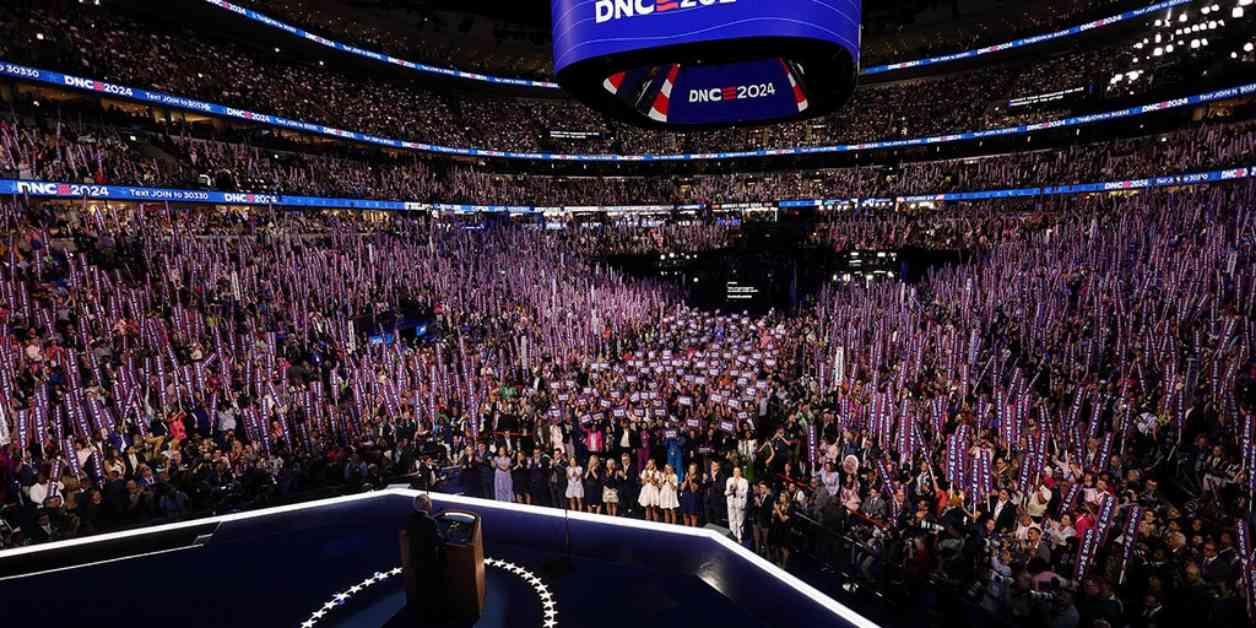Controversy Erupts Over Chicago Schools Delayed Calendar and DNC Attendance Incentives
Chicago’s school district is currently embroiled in controversy following its decision to delay the start of the academic year by a week. Critics argue that this move is politically motivated, sparking a heated debate within the community. Originally, students were set to return to school on Monday, but the School Year 2025 (SY25) calendar published by the district now shows a delayed start date.
The SY25 calendar outlines 176 full-student-attendance days, with classes beginning on the new start date and concluding on June 12, 2025. The district justified this delay by citing the upcoming Democratic National Convention (DNC) in Chicago, which is expected to draw around 75,000 visitors to the city. According to the district, the extra week will provide students with the opportunity to participate in and engage with the civic process of hosting the convention.
However, this decision has been met with criticism from various education experts and lawmakers who view it as prioritizing political interests over educational needs. One of the key points of contention was the involvement of American Federation of Teachers (AFT) union boss Randi Weingarten in a DNC panel discussion, where she was featured as a keynote speaker.
Doug Mayer, spokesperson for the Public Labor Unions Accountability Committee, strongly condemned the district’s decision, labeling it as a clear example of public sector unions wielding too much power. He expressed concern that when unions dictate educational policies based on political agendas, the interests of students are often sidelined.
Critics have also raised concerns about education-related claims made during the DNC, particularly in light of remarks by House Assistant Democratic Leader Jim Clyburn, who credited Joe Biden and Kamala Harris for reopening schools. These statements have fueled further skepticism about the motives behind the school calendar delay and the influence of teachers unions in shaping educational policy.
Representative Darin LaHood, a Republican from Illinois, criticized the city and teachers unions for allegedly prioritizing their political interests over the well-being of students. He emphasized the need for more school choice programs to provide families with alternatives to the current education system, which he believes is failing to address the needs of students effectively.
Corey DeAngelis, from the American Federation for Children, echoed these sentiments, condemning Chicago’s district for allowing politics to take precedence over children’s education. He argued that the delayed school calendar and the involvement of students in partisan activities at the DNC underscore the importance of school choice as a means to empower parents and prioritize their children’s educational needs.
The situation in Chicago has drawn attention to the reported $500 million deficit facing the school district, as well as the perceived influence of teachers unions in shaping educational policies. Critics have pointed to the close relationship between Chicago politicians and teachers unions, raising concerns about the impact of union interests on educational decision-making.
In response to these criticisms, Democratic Mayor Brandon Johnson, a former local teachers union organizer, has come under scrutiny for allegedly allowing teachers unions to exert significant influence over educational policies. Critics argue that this influence has led to decisions that prioritize union interests over those of students, resulting in prolonged school closures and disruptions to children’s education.
As the debate continues to unfold, it is clear that the controversy over Chicago’s delayed school calendar and DNC attendance incentives has sparked a broader conversation about the role of politics in education. The need for greater accountability, transparency, and a focus on student-centered policies has been emphasized by critics who believe that children’s education should not be compromised for political gain.




